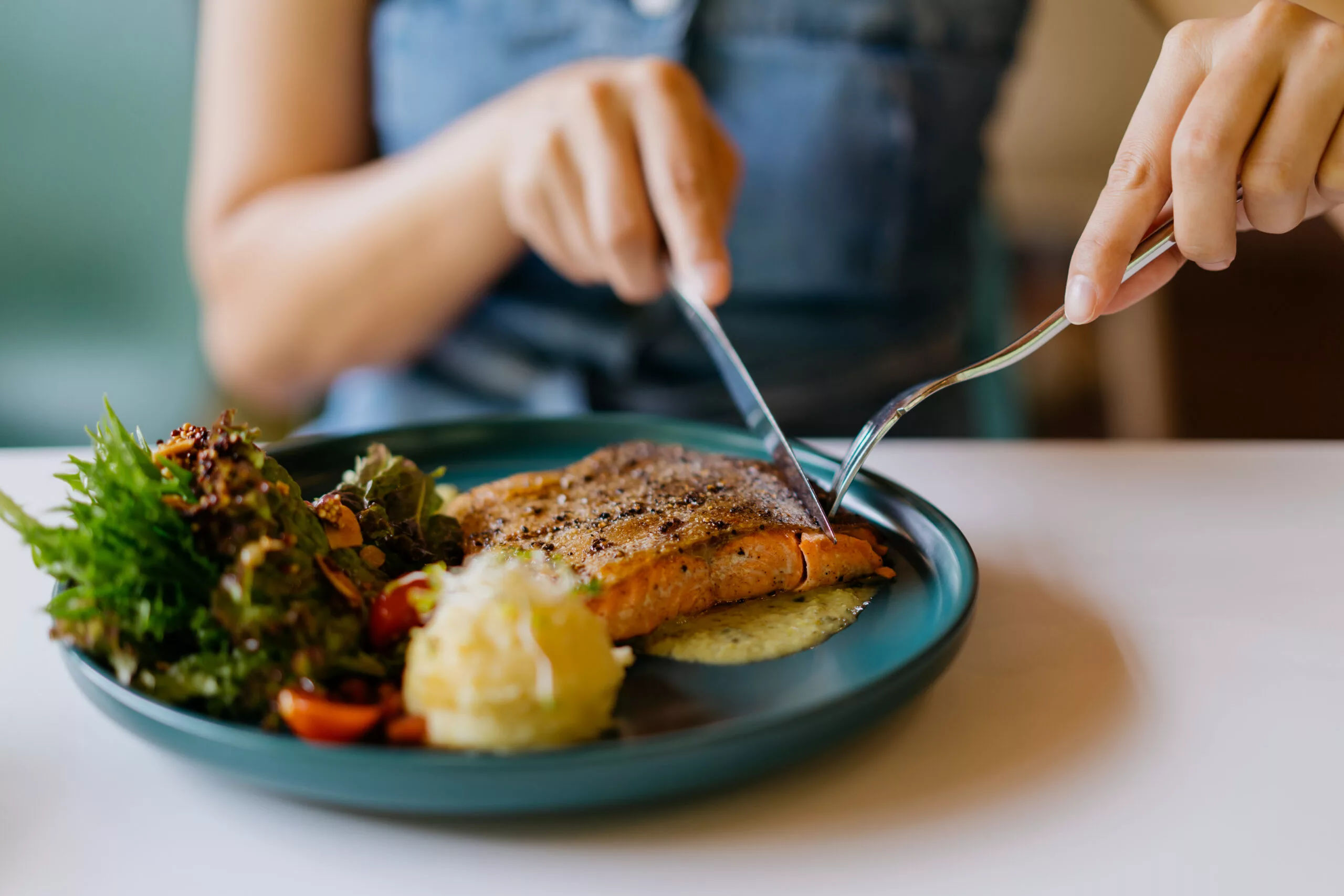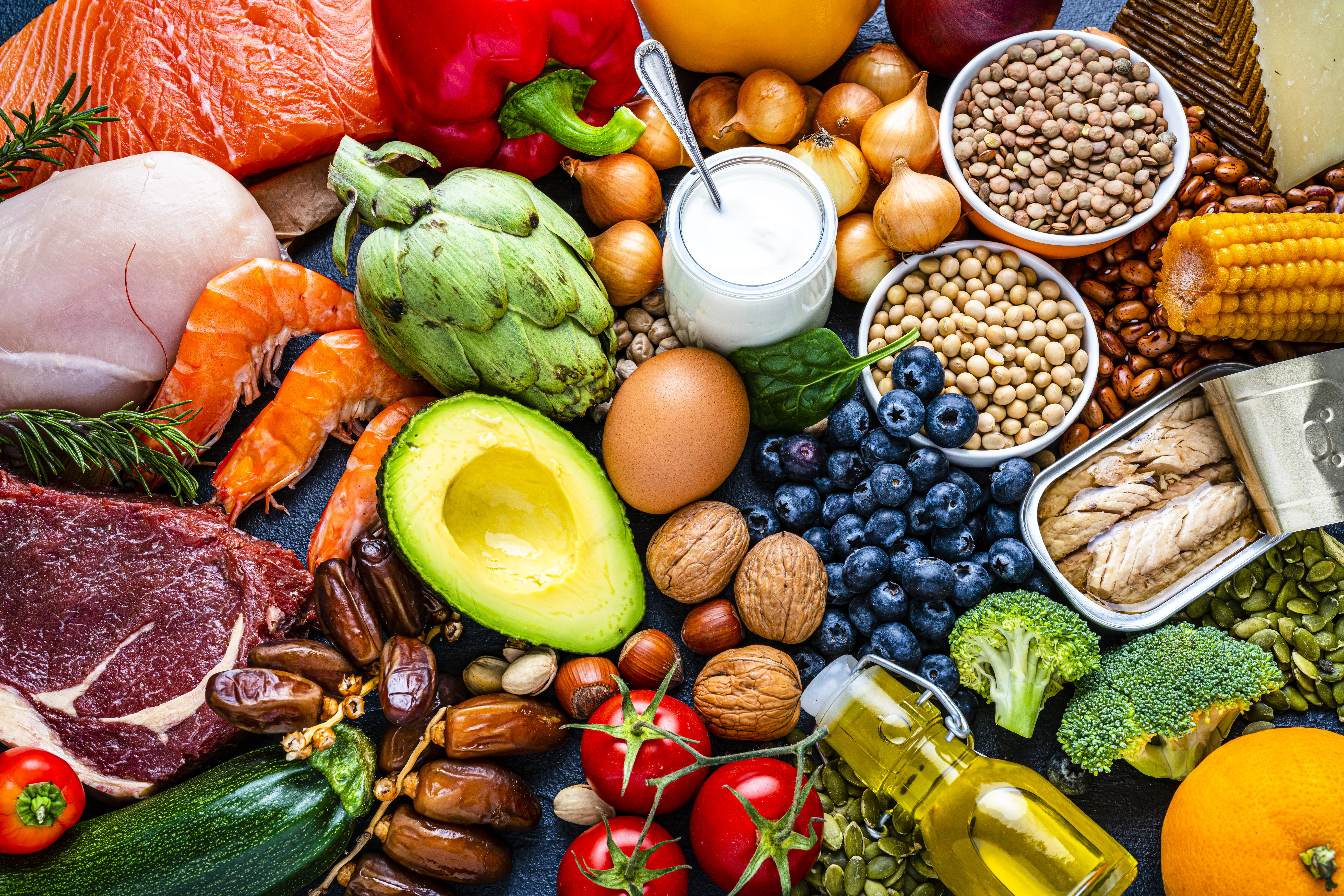
The Importance of Nutrition in Addiction Recovery
Anyone in recovery can tell you that it isn’t just a mental process. Your body and your mind both face serious obstacles in the process of detox and rehab, and nourishing both is important. The first line of defense for healing the mind is through therapy, often cognitive behavioral therapy, but what practices focus on taking care of your body?
While there are many avenues for strengthening your physical body and restoring proper functioning, such as exercise and medication, nutrition can (and should) be one of the main focuses of your recovery.
Every person at every stage of recovery can benefit from education on nutrition, balanced meals and a healthy relationship with food. In this article, we’ll explore the benefits of good nutrition and the steps to get there.
Nutrition in recovery
During an addiction a person’s body is working overtime to maintain equilibrium. A system without drugs or alcohol is able to maintain proper temperature, fluid levels, heart rate, hormone levels, blood sugar and other essential functions. This is all thrown into disorder when a drug or alcohol addiction is at play.
Restoring your body to its natural state through rehab allows you to return to optimal functioning, and this can’t be done without proper eating. Nutrition and addiction recovery are closely tied, and while you’re healing from substance abuse you’ll find sobriety is much easier when you have a balanced diet.
Supplements for recovery
When a person is caught up in an addiction it’s common to have numerous nutritional deficits. Taking supplements and focusing on boosting your intake of certain foods can replenish your body.
Certain drugs and alcohol prevent the absorption of essential vitamins and minerals as well as depleting the body’s resources. Moreover, when substance use controls a person’s every decision and action, it’s unlikely that eating regular and balanced meals is at the front of someone’s mind.
Some key nutrients to add to bolster nutrition and addiction recovery include—B vitamins (like B6 and B12), vitamin C, magnesium, and omega-3 fatty acids. You can take a multivitamin to increase your intake of these vitamins, or consume foods with high amounts of these essential nutrients.
Benefits of good nutrition
There are numerous benefits of good nutrition that can impact your sobriety and your overall well being. Here are a few of the perks:
- Keeps skin, eyes and teeth healthy
- Builds strong muscles
- Improves immunity
- Increases energy
- Builds and repairs organ tissues
- Improves sleep quality
- Improves memory and learning capabilities
- Increases self-esteem
- Decreased eating-related symptoms like bloating, queasiness and fatigue
- Decreased stress
- Improves digestion
- Decreased risk of heart disease, diabetes and some cancers
- Stronger bones
- Helps you to maintain a healthy weight
The benefits of good nutrition are well worth the time it takes to seek out proper education on nutrition as part of your recovery journey.
Tips for creating a balanced diet
Creating a balanced diet and improving your relationship with food can be a daunting task. Thankfully, nutritionists and dieticians are available for consultation during your recovery and can greatly assist in the process through personalized meal plans according to your needs and taste preferences.
If you’re looking for tips to implement before you can meet with a nutrition specialist, consider applying the following tips to your eating routine.
1. Focus on adding more fruits and vegetables
It’s safe to say that most people would benefit from an increase of fruits and vegetables in their diets. Fresh or frozen fruits and veggies offer numerous vitamins and minerals in their natural forms instead of synthetic forms that are found in multivitamins.
2. Modify your portions of meat
Americans generally have a poor perception of what a portion size of meat should look like. Generally, a serving size of meat is about the size of a deck of cards. Aim to consume meat that is reasonably portioned. Avoid fried foods and aim to eat lean meats like turkey or fish more often.
3. Avoid highly processed foods
Processed foods offer convenience and sometimes lower costs, but consumers end up paying in the long run. Highly processed foods (like cereal, chips, crackers, frozen meals, pastries and the like) contain large amounts of unhealthy sugars, fats and carbohydrates.
A good rule of thumb is if you can’t distinguish the ingredients on the label or make the product itself, it’s probably too processed to offer much benefit.
4. Avoid pop and energy drinks
In recovery it’s tempting to look for a quick energy boost. Caffeinated soda, coffee drinks and energy drinks offer short term perks but are bad for you to consume regularly. Don’t make reaching for a pop at the store a habit, and opt for more natural alternatives like tea, homemade chai lattes or flavored seltzer water.
5. Eat regular meals
Eating three or four regular meals a day can help you maintain a healthy weight and a structured lifestyle. Addiction can easily scramble our daily routine, and setting up your day with a predictable routine is good for your digestion and your mental wellbeing.
Improve your nutrition today
Nutrition in recovery isn’t elusive and anyone can benefit from the advantages of a healthy relationship with food. If you are eager to experience the benefits of good nutrition but don’t know where to start, check out Bluff Augusta.
At Bluff Augusta you’ll find holistic and evidence-based treatment that has proven to be effective at helping people achieve and maintain long-term recovery. Contact us today to set up an appointment.








